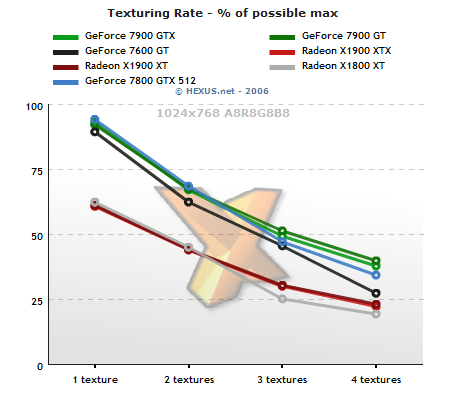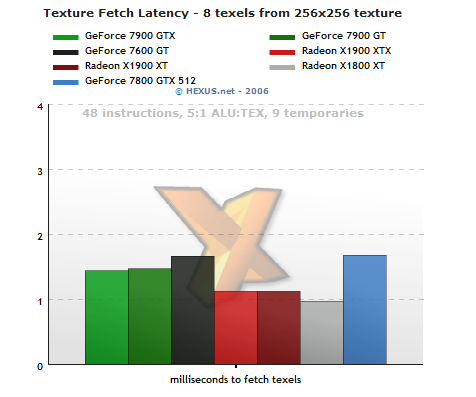But you can't expect that adding more cache will increase perfomance in a linear scale. I think there was some talk about the extra cache here at B3D some time ago, maybe the search function will add some more depth to it, try "96kb" without quotes to use 4 letters.
And I highly doubt that perfomance increase G71 shows over G70 is all alone becouse of more cache, if anything it would be a small part of it.
And I highly doubt that perfomance increase G71 shows over G70 is all alone becouse of more cache, if anything it would be a small part of it.
Last edited by a moderator:


